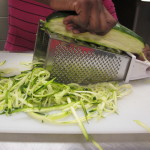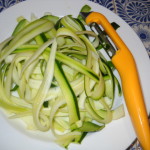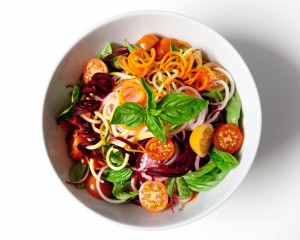If you are a parent or a teacher, perhaps you have had to deal with a scene like this. Picture an after-school meeting with three or four teachers sitting around a conference table, along with a haggard parent, and an impatient student.
“I’m sorry, but your child’s participation and motivation levels have been dropping this semester.”
“I don’t know why. He says he’s doing his homework whenever he has any to do at home.”
“My understanding is he used to do well in his subjects, but we all have seen a general lack of caring. He seems so able, but we are having a hard time motivating him to apply his abilities anymore.”
“Yes, but things are hard at home. My job is on the swing shift, so I don’t get to be around him much. I leave him food to eat, but mostly he eats fast food with his friends and just seems to like mac n’ cheese when he gets home. It’s getting harder for me to get him to keep up with his chores at home, too. His friends are nice enough, and he isn’t in trouble with the law.”
“We are just hoping we could all work together the help him to see how much potential he has but he has to use that potential to succeed.” ……
 Dr. Tom O’Bryan recently cited an article in the “Scandinavian Journal of Gastroenterology, 2005; 40:1407-1412,” which, I too, have reviewed. A group of researchers in Finland, studying lifestyle and genetic factors in a group of children in a 30-year study about heart disease, was able to share their blood-study results with another group of researchers looking at the long-term effects of silent Celiac Disease.
Dr. Tom O’Bryan recently cited an article in the “Scandinavian Journal of Gastroenterology, 2005; 40:1407-1412,” which, I too, have reviewed. A group of researchers in Finland, studying lifestyle and genetic factors in a group of children in a 30-year study about heart disease, was able to share their blood-study results with another group of researchers looking at the long-term effects of silent Celiac Disease.
What a bonanza of information was shared! Of the initial group of 2,800 children, 2,400 were still in the study 21 years later, enabling the second group of researchers to see any effects of undiagnosed/silent Celiac Disease on the educational and life goals of these children. After studying their blood samples and testing for Celiac Disease (CD) they found a group with silent CD. This group differed in no way from their cohort in relation to age, gender, stature, weight, medical diagnoses, health concerns, use of alternative medications, physical or social activity, or cause of death of parents.
 But those with silent wheat allergies were four times less likely to attend college than those with no wheat allergies. In the work force, only 28% of those with silent CD were in management positions compared to 45% of their non-allergic cohort.
But those with silent wheat allergies were four times less likely to attend college than those with no wheat allergies. In the work force, only 28% of those with silent CD were in management positions compared to 45% of their non-allergic cohort.
Do you see pieces of the puzzle falling into place? Clearly, not everyone has Celiac Disease or even falls into the gluten sensitivity spectrum, but aren’t you even a little bit curious to see what your brain or your loved ones’ brains could look like off gluten? Underachievement need not be the by-word around the family table discussions at report card time.
If you and your family could fix this, would you? Why would you not?
According to Celica Central, the current diagnosis rate for CD is 1 person out of every 133 people. However, this is literally the tip of the ice burg! For every one person who is diagnosed, there are eight people who aren’t! Picture an ice burg. What we see on top of the water is just a pinch of the actual size of the ice burg as most of it is unseen underwater. Such a perfect analogy for gluten sensitivities. Celiac Central’s research suggests that by 2019, the diagnosis rate for CD will go up 50-60% due to increased public awareness. That’s what one of my goals is here.
Now, What’s on My Plate:

Zoodles! Anyway I can get ‘em! With the farmer’s markets now offering every imaginable version of summer squash, this is the best time of year to eat Zoodles (a.k.a. julienned zucchini). Who needs wheat pasta or even gluten-free pasta when you can increase your veggie intake and supplant empty carbs!
Using a julienne peeler or a spiral slicer, create your Zoodles using about 2 lbs. of fresh squash (it does not have to be just zucchini). You can pre-peel the squash or not.

Place Zoodles in a colander and toss with about 1 tsp of sea salt and allow to rest for up to ½ hour. This coaxes the extra moisture out of the Zoodles so your plate won’t look soupy. After 20-30 minutes, rinse the Zoodles under cold water and squeeze dry. Paper towels work, but I like using a clean kitchen towel to spread out the Zoodles, roll up, and gently squeeze.
The rest is up to you:
A quick stir-fry with a bit of ghee, minced garlic or garlic powder, and perhaps Penzey’s Bavarian Spice, with a splash of toasted sesame oil to finish for a great side dish
As a stir-fry spaghetti noodle substitute for your favorite spaghetti sauce!
As a raw salad recipe thanks to Zen Belly:
Mix together:
¼ cup tahini
1 (1 inch) piece of fresh ginger, peeled and grated
2 Tbsp. coconut aminos
1 tsp. fish sauce (check it’s gluten free)
½ tsp red pepper flakes
Garnish with:
1 sm bunch scallions, sliced
2 Tbs sesame seeds
If you would like to learn more about how you can implement simple dietary changes that could revolutionize your health, please join our community by subscribing to this blog. Just type in your email address in the box on the left of this screen and click on the green subscribe button. We never share your information and you can unsubscribe at any time.
I welcome your comments and testimonials. Remember, if you or anyone else you love is not at their best, go gluten-free for 30-60 days. 100% gluten-free. Not 98%. Has to be 100% because gluten is just that insidious! There is nothing to lose, except your health, life, sanity, if you don’t.
Thanks for reading!
Deidre
Disclaimer:
The information being discussed in these blogs is NOT intended to replace a relationship with a qualified health care professional. Foodtalk4you blogs endeavor to empower people through the exploration of publicly available resources of information about human anatomy and physiology, and how different foods affect the human body. Readers should seek the advice of their qualified health care providers with any questions about their medical conditions or health status before attempting any dietary, exercise, or lifestyle changes.

